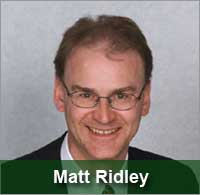With there having been no meaningful rise in global temperatures for 16 or 18 years, depending on which numbers you use, contrary to most models of the impact of CO2 on such temperatures, is it time to relook at global warming science?
That"s the question posed in a recent Wall Street Journal column by Matt Ridley, an author of several popular science books and a member of Britain"s House of Lords. Needless to say, he has since been vigorously and viciously attacked by the "the science is settled" ranks, which are huge.
ARidley notes the UN Panel on Climate Change could in the end not ignore the hiatus in rising global temperatures. He says that as opposed to previous reports, in the 2013 version "The UN no longer claims that there will be dangerous or rapid climate change in the next two decades. Last September, between the second and final draft of its fifth assessment report, the UN's Intergovernmental Panel on Climate Change quietly downgraded the warming it expected in the 30 years following 1995, to about 0.5 degrees Celsius from 0.7 (or, in Fahrenheit, to about 0.9 degrees, from 1.3)."
With no rise in temperatures since before 2000, Ridley says that at first the climate-research establishment denied that a pause existed, noting that if there was a pause, it would invalidate their theories. Now Ridley says they acknowledge there is a pause, but say that it doesn't after all invalidate their theories and models.
"Alas, their explanations have made their predicament worse by implying that man-made climate change is so slow and tentative that it can be easily overwhelmed by natural variation in temperature - a possibility that they had previously all but ruled out," Ridley wrote.
"The scientific community would come down on me in no uncertain terms if I said the world had cooled from 1998," wrote Phil Jones of the University of East Anglia in Britain in 2005. He went on: "Okay it has, but it is only seven years of data and it isn't statistically significant."
Except that now it is more like 16 years of data. And that length of temperature ""hiatus" is in fact very significant, Ridley says. He cites a report from the National Oceanic and Atmospheric Administration (NOAA) written in 2008 as saying that "The simulations rule out (at the 95% level) zero trends for intervals of 15 years or more," meaning that if such a hiatus was seen, it would prove the climate models were incorrect.
Ridley adds that "It has been roughly two decades since there was a trend in temperature significantly different from zero. The burst of warming that preceded the millennium lasted about 20 years and was preceded by 30 years of slight cooling after 1940."
 His point: the "hockey stick" temperature graph is simply not right. His point: the "hockey stick" temperature graph is simply not right.
Unable to deny the temperature hiatus, Ridley says that climatologists have proposed all kinds of explanations, including Chinese economic growth that supposedly pushed cooling sulfate particles into the air, the removal of ozone-eating chemicals, an excess of volcanic emissions, and a slowdown in magnetic activity in the sun.
But his favorite rite is that strong trade winds in the Pacific Ocean had been taking warmth from the air and sequestering it in the ocean. He says that theory was based on a few sketchy observations, suggesting a very tiny change in water temperature - a few hundredths of a degree - at depths of up to 200 meters. Among the climatologists that proposed this theory, Xianyao Chen and Ka-Kit Tung say the phenomenon may keep temperatures flat for another 20 years or more – not exactly promoting a sense of urgency on climate from the masses.
"Let's hope that the United Nations admits as much on day one of its coming jamboree [UN Climate meeting in New York City in two weeks], and asks the delegates to pack up, go home and concentrate on more pressing global problems like war, terror, disease, poverty, habitat loss and the 1.3 billion people with no electricity," Ridley concludes.
We say: There is still a lot of science to be done here, and it is foolish and dangerous to pretend there isn't.
What do you think of Ridley's perspective? Let us know your thoughts at the Feedback button below.

TheGreenSupplyChain.com is now Twittering! Follow us at www.twitter.com/greenscm
|